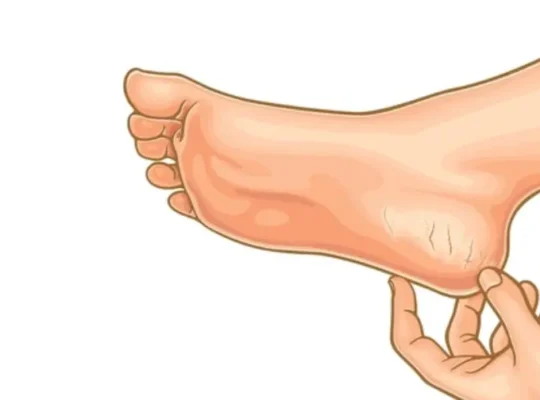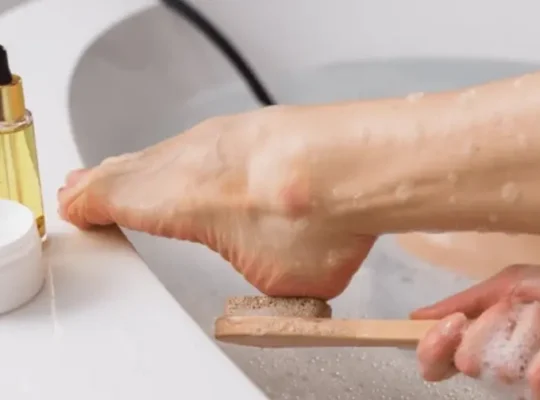Introducion
Underarm odor is not an unusual problem that impacts humans of all ages, frequently causing embarrassment and social discomfort. While sweating is a natural and important bodily characteristic, the unsightly scent that sometimes accompanies it could considerably affect our self-perception and daily interactions. Understanding the technological know-how behind underarm smell and mastering powerful control techniques permits you to maintain freshness and experience extra comfort in social situations.
Understanding the Science of Underarm Odor
What Causes Underarm Smell?
Contrary to well-known belief, sweat itself is essentially odorless. The characteristic fragrance we associate with underarm heady scent truly results from the interaction between sweat and bacteria naturally present on our pores and skin. When the microorganisms break down the proteins and lipids located in sweat, they produce compounds called thioalcohols, which have scents similar to sulfur, onions, or meat.
The human armpit presents a perfect environment for bacterial growth—it is hot, wet, and usually dark. This creates the high-quality conditions for microorganisms to thrive and produce the compounds responsible for body scent.
Types of Sweat Glands and Their Role
Our bodies contain one-of-a-kind varieties of sweat glands that contribute to underarm scent in numerous ways:
1. Eccrine Glands:
These glands are located all around the frame and open directly onto the skin’s surface. They produce a clear, odorless fluid essentially composed of water and salt. Eccrine glands are especially accountable for temperature regulation.
2. Apocrine Glands:
Located in regions with many hair follicles, which include the armpits, these glands increase within the course of puberty and secrete a thicker, protein-rich fluid. When this secretion comes into contact with pores and skin microorganisms, it can expand the smell commonly associated with underarm scent.
3. Apocrine Glands:
These intermediate glands grow from eccrine glands between the ages of 14 and may incorporate as many as 45% of underarm glands over a long time (16-18). They proportion houses with each eccrine and apocrine gland.
The Role of Bacteria in Odor Production
Research has identified particular bacterial species as the primary culprits behind the back of underarm scent. Studies display that Staphylococcus hominis, Staphylococcus epidermidis, and Cutibacterium avidum are truly correlated with smell intensity. These microorganisms break down sweat additives into unstable compounds that create the characteristic odor.
Interestingly, no longer do all microorganisms make contributions to scent—a few species like Acinetobacter schindleri are simply related to reduced scent. This highlights the complicated nature of the pores and skin microbiome and its function in scent improvement.
Common Causes of Underarm Odor
Hormonal Changes and Puberty
Hormonal fluctuations play a big role in underarm scent improvement. During puberty, apocrine glands grow to be more energetic, generating thicker sweat that provides an ideal environment for bacterial growth. This explains why teenagers frequently experience a stronger body scent compared to younger youngsters.
Research has shown that teenage body scent includes higher levels of carboxylic acids and precise steroids not observed in younger children’s sweat. These compounds contribute to the extra-strong and large body smell that emerges at some stage in formative years.
Stress and Emotional Sweating
Stress-caused sweating differs significantly from temperature-regulating sweat. When you’re compelled, irritated, or experiencing robust feelings, your apocrine glands come to be activated, producing sweat that is rich in proteins and lipids. This sort of sweat gives more “food” for bacteria, often resulting in a more potent, greater, and smelly smell.
The stress response triggers the discharge of hormones like adrenaline and cortisol, which stimulate apocrine glands and may intensify underarm odor. This is why you may be conscious of a stronger body scent at some points, especially during worrying periods.
Diet and Nutrition Impact
What you consume can considerably affect your body smell. Certain ingredients are known to heighten underarm odor:
Foods that give off odor:
- Garlic and onions (high in sulfur compounds)
- Red meat (longer digestion time will increase sweat production)
- Spicy elements and sturdy spices like cumin, curry, and fenugreek
- Processed food and junk food
- Alcohol and caffeine
Foods that could reduce smell:
- Fruits and vegetables are rich in antioxidants.
- Chlorophyll-wealthy leafy veggies
- Citrus results (assist in removing pollutants)
- Foods rich in calcium
Medical Conditions
Several clinical situations can contribute to improved underarm scent:
1. Hyperhidrosis:
This circumstance results in excessive sweating beyond what is desired for the temperature law. People with hyperhidrosis may additionally experience more severe body odor due to increased sweat production.
2. Trimethylaminuria:
Also known as “fish fragrance syndrome,” this uncommon genetic sickness prevents the body from breaking down trimethylamine, resulting in a strong fishy scent in sweat, breath, and urine.
3. Diabetes and thyroid problems:
These conditions will affect sweat composition and increase frame fragrance.
4 . Kidney and liver disorders:
These situations might also affect the body’s ability to eliminate waste products, potentially affecting body odor.
Poor Hygiene Practices
Inadequate private hygiene allows bacteria to accumulate and multiply, leading to more potent odors. Factors that contribute to terrible hygiene include
- Infrequent washing of the underarms
- Not drying very well after bathing.
- Wearing grimy or unwashed garb
- Failure to trade garments regularly
Effective Management and Prevention Strategies
Proper Hygiene Practices
1. Daily Cleansing:
Wash underarms at least two times every day with antibacterial cleaning soap to remove sweat, microorganisms, and useless pores and skin cells. Choose soaps containing materials like tea tree oil, neem, or benzoyl peroxide for extra tremendous antibacterial benefits.
2. Thorough Drying:
After bathing, absolutely dry your underarms before dressing. Bacteria thrive in wet environments, so making sure the area is absolutely dry is important for odor prevention.
3. Regular Exfoliation:
Gently exfoliate underarms a few times weekly with the use of a moderate scrub or chemical exfoliant containing glycolic acid or salicylic acid. This gets rid of dead pores and skin cells that may harbor sweat and microorganisms.
Hair Management
Underarm hair can trap sweat and bacteria, making the scent extra noticeable. Regular shaving or trimming facilitates holding the area cleaner and permits antiperspirants to work more effectively. However, avoid shaving improperly away earlier than using use of products, as this may cause infection.
Choosing the Right Products
Antiperspirants vs. Deodorants:
Understanding the difference is essential for effective smell control.
- Antiperspirants incorporate aluminum compounds that briefly block sweat glands, decreasing moisture.
- Deodorants do not prevent sweating; however, they comprise antibacterial ingredients and fragrances to neutralize the heady scent.
Many products integrate all competencies for complete safety. For fine outcomes, exercise antiperspirants to clean, dry pores and skin before bedtime, at the same time as sweat gland activity is lowest.
Natural Alternatives:
For those seeking chemical-free options, several natural elements can help manage scent:
1. Baking soda:
Neutralizes odor-causing acids
2. Apple cider vinegar:
Has antibacterial properties
3 . Lemon juice:
It contains citric acid that creates inhospitable surroundings for microorganisms
4. Essential oils:
Tea tree, lavender, and peppermint oils have herbal antibacterial properties.
Clothing Choices and Fabric Selection
The form of material you put on considerably influences the underarm fragrance. Research indicates that unique materials soak up and preserve odor-causing compounds otherwise.
Best material picks for scent prevention:
1. Cotton:
Natural, breathable fiber that absorbs a lot less odor
2. Linen:
Excellent airflow and moisture-wicking homes
3. Bamboo:
Naturally antibacterial and moisture-wicking
4 . Merino wool:
Natural scent resistance
Fabrics to avoid:
1. Polyester:
Tends to lure and maintain odors more than herbal fibers
2. Nylon:
Similar odor-retention troubles to polyester
3. Tight-fitting artificial substances:
It can trap warmth and moisture.
Choose loose-fitting, breathable garb that lets air pass across the underarm area.
Stress Management
Since stress can accentuate underarm fragrance through prolonged apocrine gland activity, handling stress levels can help reduce the smell. Effective stress management techniques encompass
- Regular exercising (even though maintaining ideal hygiene in a while)
- Meditation and rest techniques
- Adequate sleep
- Deep respiratory sporting activities
Dietary Modifications
Making strategic nutritional adjustments can sincerely lessen underarm scent.
Include extra:
- Water (allows dilute sweat compounds)
- Chlorophyll-wealthy vegetables
- Citrus stop result
- Foods excessive in zinc and magnesium
Limit or avoid:
- Sulfur-wealthy ingredients like garlic and onions
- Spicy food
- Processed meals
- Excessive alcohol and caffeine
When to Seek Medical Attention
While underarm scent is usually viable with the right hygiene and lifestyle modifications, high-quality conditions warrant scientific sessions.
- Sudden changes in body fragrance without an apparent purpose
- Extremely robust or unusual odors that do not respond to hygiene measures
- Excessive sweating that interferes with each day’s sports activities
- Signs of pores and skin infection or contamination in the underarm area
- Persistent scent regardless of regular hygiene practices
Healthcare vendors can evaluate for underlying clinical situations like hyperhidrosis, hormonal imbalances, or metabolic issues that would contribute to excessive smell.
Advanced Treatment Options
For intense instances of underarm fragrance or hyperhidrosis, numerous medical remedies are to be had:
1. Prescription Antiperspirants:
Stronger formulations containing better concentrations of aluminum chloride.
2. Oral Medications:
Anticholinergic capsules like oxybutynin can lessen sweating.
3. Botulinum Toxin Injections:
Botox injections can efficiently reduce sweating for three to six months.
4. Iontophoresis:
This remedy uses low-intensity, electric-powered modern technology to temporarily reduce sweating.
5. Surgical Options:
For extreme cases, techniques like sympathectomy can be taken into consideration.
Natural Home Remedies
Several Circle of Relatives gadgets can function as powerful herbal deodorants:
1. Green Tea:
Contains tannins that may assist in reducing sweating. Apply cooled, inexperienced tea to the underarms with a cotton pad.
2. Turmeric Paste:
Has antibacterial properties that help eliminate smell-causing bacteria. Mix turmeric powder with water to create a paste, apply it briefly, and then rinse.
3. Coconut Oil:
Has natural antibacterial and antiviral properties. Apply a small quantity and allow to dry completely before dressing.
4. Witch hazel:
Acts as an herbal astringent and antibacterial agent.
Conclusion
Underarm odor is a condition that impacts millions of humans globally. By understanding the underlying reasons for the irregular interaction between sweat and bacteria regularly, you can put in place effective techniques to maintain freshness at a few levels throughout the day. The key lies in steady hygiene practices, appropriate product choice, clever garb alternatives, and ways of lifestyle changes.
Remember that some diplomas of fragrances are regular and herbal. The goal is not to eliminate all natural scents, however, but to preserve a degree of freshness that keeps you cushty and assured in social conditions. With the proper aggregate of prevention techniques and control techniques, you could correctly control underarm body scent and feel more confident in your everyday interactions.
If good-sized hygiene measures and over-the-counter products aren’t imparting satisfactory outcomes, do not hesitate to talk it over with a healthcare professional. They can assist you in becoming aware of any underlying reasons and advocate suitable treatment alternatives tailor-made to your precise wishes.
Frequently Asked Questions (FAQs)
Q: Why do my armpits smell even after showering?
A: Underarm odor after showering can occur in case you’re not using antibacterial soap, are not thoroughly cleaning, or if microorganisms have built up in your armpit. Make sure to clean with antibacterial cleaning soap, dry completely, and put on smooth clothes.
Q: Is it normal for teens to have more of an “ent” frame smell?
A: Yes, it’s completely normal for teens to experience more potent body odor at some point in puberty. Hormonal adjustments activate apocrine glands, which produce sweat that really is more appealing to heady scent-inflicting bacteria.
Q: Can positive meals make my body smell worse?
A: Absolutely. Foods excessive in sulfur (like garlic and onions), spicy components, pork, and processed foods can intensify breath odor. These compounds are metabolized and can be released through sweat.
Q: What’s the distinction between deodorant and antiperspirant?
A: Deodorants mask or neutralize scent but do not save you from sweating, while antiperspirants comprise aluminum compounds that briefly block sweat glands to reduce moisture. Many products integrate each competency.
Q: When do I have to see a physician about body fragrance?
A: Consult a healthcare professional if you have surprising modifications in frame scent, fantastically robust odors that don’t respond to hygiene measures, excessive sweating that interferes with each day’s life, or chronic smell irrespective of appropriate hygiene.
Q: Are natural deodorants as effective as business ones?
A: Natural deodorants can be effective for many people, mainly people with moderate to slight scent issues. They neutralize and soak up moisture, even though they commonly don’t prevent sweating like aluminum-based antiperspirants.
Q: Why does stress make my underarm odor worse?
A: Stress turns on apocrine sweat glands, which produce protein- and lipid-rich sweat that bacteria like to feed on. This creates more potent-smelling compounds in comparison to everyday temperature-regulating sweat.
Q: Can clinical conditions cause excessive underarm odor?
A: Yes, conditions like hyperhidrosis (excessive sweating), diabetes, thyroid problems, trimethylaminuria, and kidney or liver troubles can make contributions to increased body odor. If you determined a scientific reason, you are looking for advice from your healthcare company.












